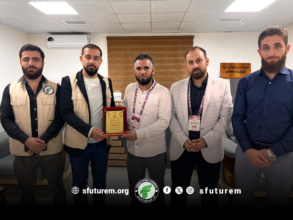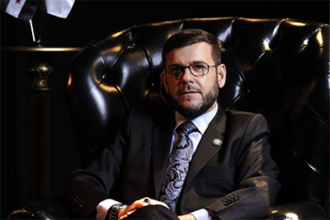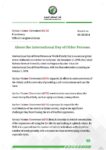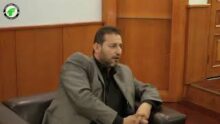Theorists and Thinkers: Role and Importance

Introduction:
Thinkers and theorists are the backbone of any society. Contrary to the way some comedians label those who excel in words without action as mere “theorists,” true theorists are the driving force behind change and progress! They are the ones who pose the big questions, explore new ideas, and offer innovative insights about the world around us. They navigate through the complex and intricate realities, seeking solutions to its challenges and difficulties.
Between Thinkers and Theorists:
If a thinker is someone who dedicates time and effort to deep reflection on the various issues facing society, then they strive to understand the world more profoundly and uncover the complex relationships between different phenomena.
Therefore, one of the essential characteristics of a thinker is:
- Curiosity, as a thinker is marked by constant curiosity and a desire to discover new things.
- A thinker does not accept ready-made ideas; instead, they try to critique and analyze them.
- A thinker has the ability to generate new ideas and innovative solutions to problems.
- A thinker seeks to envision the future and identify the challenges and opportunities that society may face.
On the other hand, a theorist is the person who organizes and shapes ideas into comprehensive theories. They build upon the concepts presented by thinkers and transform them into cognitive frameworks that can be used to analyze social, political, and cultural phenomena.
Thus, the role of a theorist includes:
- Building Theories: The theorist constructs theories that explain social, political, and cultural phenomena.
- Developing Concepts: The theorist develops new concepts that aid in better understanding the world.
- Guiding Scientific Research: The theorist directs scientific research towards specific questions.
The Importance of Thinkers and Theorists to Society:
Thinkers and theorists play a crucial role in guiding society towards a better future. In addition to this guidance, the importance of thinkers and theorists can be seen in:
- Contributing to the expansion of human knowledge.
- Offering innovative solutions to the problems facing society.
- Igniting the spark of creativity and innovation in others.
Some clear and undisputed examples of thinkers and theorists from whom we can benefit include:
- Philosophers: Such as Socrates, Plato, and Aristotle.
- Scientists: Such as Newton and Einstein.
- Writers: Such as Tolstoy and Dostoevsky.
- Economists: Such as Adam Smith and Keynes.
- Political Figures: Such as Martin Luther King Jr. and Jean-Jacques Rousseau.
Negatives and Drawbacks:
Despite the important role of thinkers and theorists in society, it is essential to acknowledge the potential downsides that may arise from their ideas and theories. Some of these drawbacks include:
- Extremism in Ideas: Sometimes, a thinker’s deep dive into a particular idea can lead to extremism and an inability to accept opposing viewpoints, which may result in societal divisions and conflicts.
- Difficult Application of Theoretical Ideas: Some theoretical ideas may be challenging to implement in reality or may overlook the social, economic, and political factors that influence society.
- Disruption of Social and Political Stability: Certain extremist or revolutionary ideas can also lead to the destabilization of social and political structures.
- Exploitation of Theoretical Ideas: Some individuals may exploit theoretical ideas for personal or political purposes, resulting in the distortion of these ideas and their use to achieve narrow interests.
- Complexity of Theoretical Ideas: Some theoretical concepts are overly complex, making it difficult for the general public to understand and apply them.
- Neglecting Practical Application: Some thinkers focus heavily on the theoretical aspect and ignore the practical side of applying their ideas.
It is important to note here that these negatives are not inevitable; they depend on various factors, such as:
- The Thinker’s Personality: Is the thinker open to dialogue and critique? Do they recognize the limitations of their ideas?
- Social and Political Conditions: Is there an atmosphere of intellectual freedom and tolerance? Or are there restrictions on the expression of ideas?
- Presentation of Ideas: Are ideas presented clearly and simply? Or are they complex and filled with technical jargon?
To mitigate these negatives, we believe that thinkers and theorists should be open to critique and dialogue, listen to others’ opinions, connect their ideas to reality by considering social, economic, and political factors, take responsibility for the impact of their ideas, bear accountability for any negative effects that may arise from their concepts, and present their ideas in clear and simple language so that they can be understood by as many people as possible.
A Syrian Necessity:
The role of thinkers and theorists in addressing Syria’s dilemmas is of utmost importance and even existential. Syrian thinkers and theorists possess powerful tools that can significantly contribute to solving the accumulated issues in their country. In our opinion, some ways they can play this role include:
- Presenting Innovative New Insights: They can offer innovative perspectives on the problems facing Syria, such as the economic crisis, refugees, corruption, and sectarian divisions. These insights can help break the stagnation of conventional thinking and open new avenues for solutions.
- Building Bridges of Communication: They can foster communication between various conflicting parties, whether political, social, or sectarian, through dialogue and constructive discussion.
- Contributing to the Development of Practical Action Plans: Thinkers and theorists can contribute to developing realistic and applicable action plans to address the complex problems facing Syria, taking into account local and regional conditions.
- Promoting Public Awareness: They can enhance societal awareness of various issues and encourage citizens to participate in the decision-making process.
- Advocating for Human Rights: They can advocate for human rights and fundamental freedoms, working towards building a just democratic society.
- Influencing Decision-Makers: They can influence policymakers by providing advice and recommendations on public policies that could contribute to resolving these issues.
Challenges Facing Thinkers in Syria:
- Difficult Security Conditions: The challenging security environment makes it difficult for thinkers to work freely and exchange ideas.
- Censorship and Repression: Thinkers and theorists may face censorship and repression from authorities.
- Difficulty in Reaching Consensus: It is challenging to achieve consensus on proposed solutions due to societal divisions.
- Lack of Resources: They may encounter a shortage of resources necessary for their research and studies.
To overcome these challenges, we see the necessity of providing a safe environment for thinkers to work, encouraging dialogue and constructive criticism. This includes providing the necessary financial support for their research and studies, building networks of collaboration between Syrian thinkers and international institutions and NGOs, as well as widely disseminating the ideas of Syrian thinkers, whether through media outlets or scientific publications.
Conclusion:
Thinkers and theorists play a crucial role in building a better future for Syria through their support and encouragement. They can contribute to solving or envisioning solutions for many of the dilemmas facing Syria. However, we must also be cautious of some of the negatives associated with their ideas and evaluate them critically.
Thinkers and theorists are a fundamental pillar of any advanced society and a driving force behind change and development. They are a vital nerve in determining the paths of our future as a people and a nation.
Dr. Zaher Ihssan Baadarani
Presidency office
Article
Syrian Future Movement (SFM)






